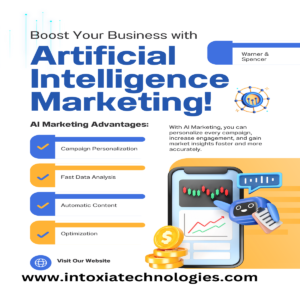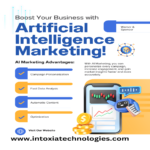
In today’s fast-paced digital world, the role of technology in shaping marketing strategies has become paramount. Among the numerous technological advancements, Artificial Intelligence (AI) stands out as a transformative force in the marketing landscape. An AI marketing strategy leverages data-driven insights, predictive analytics, and automation to optimize customer engagement, personalize experiences, and enhance decision-making processes. This essay explores the key components, benefits, and challenges of implementing AI in marketing.
Understanding AI in Marketing
Artificial Intelligence refers to the simulation of human intelligence in machines programmed to perform tasks that typically require cognitive abilities. In marketing, AI involves using algorithms and machine learning models to analyze vast amounts of data, predict customer behaviors, and automate routine tasks. AI enables businesses to understand their audience better, create personalized campaigns, and drive higher returns on investment (ROI).

